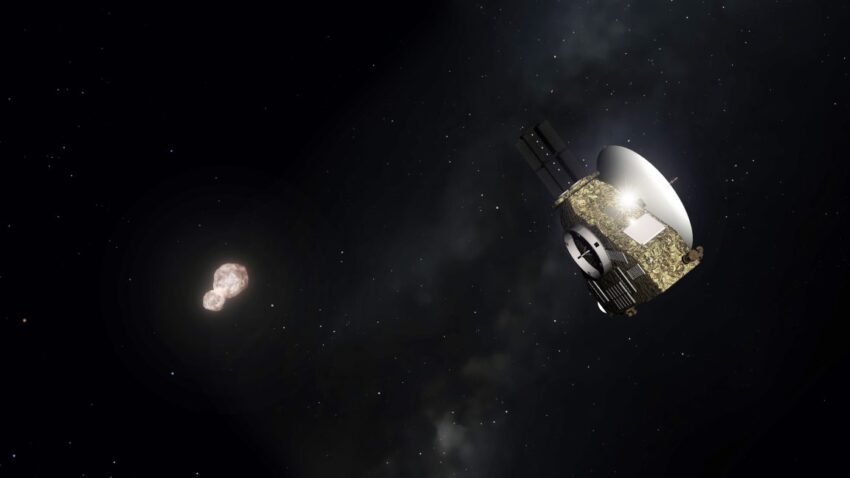
in a win for science nasa told NASA has received a crucial directive to utilize the House’s proposed budget as the threat of a government shutdown looms.
in a win for science nasa told
Current Budgetary Landscape
The fiscal year 2026 budget for the United States is currently in disarray, with significant implications for various federal agencies, including NASA. The White House initially proposed a budget earlier this year that included substantial cuts to several agencies. This proposal has sparked a contentious debate among lawmakers, resulting in a fragmented appropriations process.
As the new fiscal year approaches, set to begin on October 1, Congress has yet to finalize a budget. Both the House and Senate have put forth their own budget templates, but the lack of consensus has left many agencies, including NASA, in a precarious position. The ongoing political wrangling over whether to pass a “continuing resolution” to fund the government has heightened concerns about a potential government shutdown.
Implications for NASA
The directive for NASA to utilize the House’s budget proposal comes as a relief amid the uncertainty. The House’s proposed budget, while not without its own challenges, offers a more stable financial outlook for the agency compared to the initial White House proposal. This is particularly significant given NASA’s critical role in scientific research, space exploration, and technological advancement.
House Budget Proposal Overview
The House’s budget proposal includes funding allocations aimed at supporting NASA’s ongoing projects and initiatives. Key areas of focus in the proposal include:
- Artemis Program: Continued funding for the Artemis program, which aims to return humans to the Moon and eventually send astronauts to Mars.
- Earth Science: Increased investment in Earth observation and climate research, crucial for understanding climate change and its impacts.
- Space Technology: Funding for the development of new technologies that enhance NASA’s capabilities in space exploration.
These allocations reflect a recognition of the importance of NASA’s work and the need to maintain momentum in various scientific endeavors. The House’s budget proposal is seen as a more favorable option compared to the cuts proposed by the White House, which could have severely impacted NASA’s operations.
Political Context
The budgetary stalemate is not merely a bureaucratic issue; it is deeply intertwined with broader political dynamics in Washington. The divide between the two major parties has been exacerbated by differing priorities and approaches to federal spending. The White House’s proposed cuts were met with resistance from many lawmakers who argue that investing in science and technology is essential for the country’s future.
As the deadline for passing a budget approaches, the pressure on Congress intensifies. The potential for a government shutdown looms large, which could halt numerous federal operations, including critical NASA missions. A shutdown would not only disrupt ongoing projects but could also delay future initiatives, impacting the agency’s long-term goals.
Stakeholder Reactions
The reaction to the House’s budget proposal has been mixed, with various stakeholders weighing in on the implications for NASA and the broader scientific community. Advocacy groups, scientists, and industry leaders have expressed relief at the prospect of stable funding, but they remain cautious about the ongoing uncertainty.
Many scientists have emphasized the importance of consistent funding for research and development. “NASA’s work is vital for advancing our understanding of the universe and addressing pressing challenges on Earth,” said Dr. Emily Carter, a prominent astrophysicist. “Any disruption in funding could have long-lasting consequences for scientific progress.”
Industry leaders have also voiced their concerns, highlighting the potential impact on commercial partnerships and technological advancements. The space industry relies heavily on NASA’s funding and initiatives to drive innovation and growth. “A government shutdown would not only affect NASA but also the entire ecosystem of companies that support its missions,” stated Mark Johnson, CEO of a leading aerospace firm.
Potential Outcomes
As Congress navigates the budgetary impasse, several potential outcomes could arise. The most immediate concern is the possibility of a government shutdown, which would halt operations across various federal agencies, including NASA. However, there are other scenarios that could unfold:
Continuing Resolution
One option is the passage of a continuing resolution (CR), which would allow the government to continue operating at current funding levels for a specified period. This would provide temporary relief and enable NASA to maintain its operations while Congress works toward a final budget. However, a CR does not address the underlying issues of budgetary cuts and could lead to further complications in the future.
Final Budget Approval
Another possibility is that Congress reaches a bipartisan agreement on a final budget before the October 1 deadline. This would require significant negotiation and compromise, particularly given the stark differences between the House and Senate proposals. If successful, a final budget could provide NASA with the necessary funding to continue its critical missions.
Long-Term Implications
The long-term implications of the current budgetary situation extend beyond immediate funding concerns. A government shutdown or prolonged budgetary uncertainty could undermine public confidence in federal agencies and their ability to deliver on important scientific and technological initiatives. This could have ripple effects on public support for science funding and investment in research.
Conclusion
As the deadline for the fiscal year approaches, the situation remains fluid. NASA’s directive to use the House’s budget proposal offers a glimmer of hope amid the uncertainty, but the potential for a government shutdown looms large. The coming weeks will be critical in determining the future of NASA and its vital missions.
In the context of ongoing political debates, the importance of stable funding for scientific research and exploration cannot be overstated. The decisions made in the coming days will have lasting implications for NASA, the scientific community, and the nation’s commitment to advancing knowledge and technology.
Source: Original report
Was this helpful?
Last Modified: September 20, 2025 at 5:35 am
1 views















